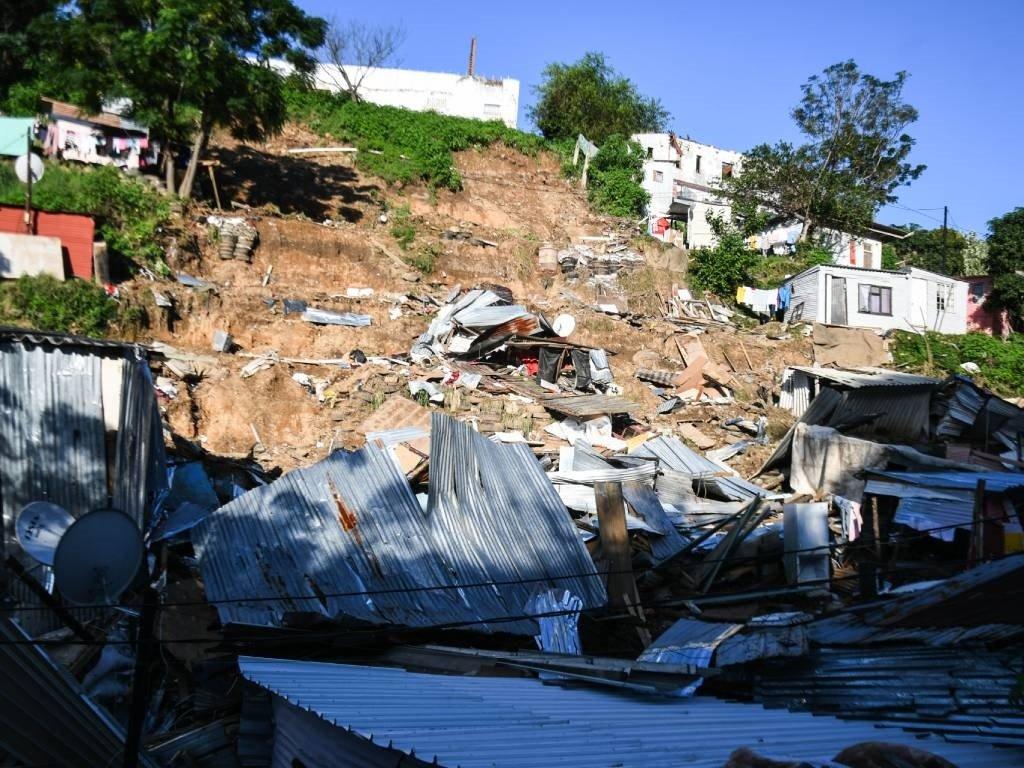Africa-Press – South-Africa. Recommendations made by an ANC ad hoc committee into the floods in KwaZulu-Natal are likely to just gather dust, because there is no political will, writes Livhuwani Nemakonde.
As if the ramifications of Covid-19 and the 2020 July unrest that devastated our country were not enough, parts of the KwaZulu-Natal and Eastern Cape provinces were ravaged by the floods in the second week of April.
The damages are estimated to be about R17 billion, give or take. The floods and their aftermath provided an opportunity to self-reflect and ultimately self-correct. As always, no one in government bothers to self-reflect but rather pins the blame on nature calling the floods “natural disasters” and climate change.
Last week City Press reported that “the recent floods that hit parts of KZN and the Eastern Cape prompted the ANC to establish a parliamentary ad hoc committee on building climate change resilience”.
ANALYSIS: Ad hoc committee on KZN floods must lose ANC’s hear no evil, see no evil outlook
This move assumes resilience to be an outcome. But resilience in itself is a catchphrase and is an elusive concept that does not have an internationally accepted definition. It has found its way into the lingo such that it is used as a panacea for all the problems. Used in relation to disasters, resilience is the capacity of people, places and infrastructure to cope with hazards and involves long term adjustments and learning to adapt to future disaster risks. This definition makes resilience a process rather than an outcome.
Living in harzardous zones
Disasters in South Africa and everywhere else in the world occur because elements (including people and infrastructure) are exposed to the hazards, in the presence of the factors that make these elements vulnerable and the insufficient capacity to cope with hazardous events. In this regard, vulnerability factors and not the hazard (floods in this case) play a major role in the impact of disasters.
By allowing people to build and reside in hazardous prone areas, or in the case of KZN floods, reside in flood zones, plains and slopes and in the process use unconventional materials to build is a recipe for disaster. Moreover, not applying building codes, compromising the quality of critical infrastructures like roads and bridges through corrupt practices and poor or lack of maintenance on drainage systems contributed to the impact of the floods.
OPINION: Dewald van Niekerk – Blaming nature for the KZN floods is avoiding taking responsibility
Our leaders shy away from looking at the real causes of disasters because the socio-economic, political and environmental factors of vulnerability is fluid, dynamic and ever-changing, and we know that in our country some of these are rooted in our past. Others are the making of the current government: inequality, poverty, ever-increasing unemployment, and lack of opportunities in rural areas that lead to rural-urban migration among others.
Therefore, blaming climate change for the KZN floods is disingenuous, and a misdiagnosis of the problem and ultimately the solutions recommended by the ad hoc committee will likely not cure the problem. Indeed, there is no such a thing as natural disasters and climate change does not cause disasters. Climate change may heighten the intensity and severity of some hydrological and meteorological hazards.
It is not as if government does not have money to address these problems. The main issue is that government does not have its spending priorities right. Look at the amount of money that government spent on cushioning the impact of Covid-19. Moreover, after the declaration of the national state of disaster as a result of the KZN floods, the President pronounced that government will make R1 billion available towards the disaster to be used to help affected communities with emergency assistance, to rebuild their homes and restore services and infrastructure. All this money and funding eroded through corrupt practices and fruitless and wasteful expenditures could be directed towards the development of the country. In the process, this will address the challenge of unemployment, poverty, and inequality, among others, all of which render communities vulnerable to hazards.
Climate will always change
As always, the climate will always change (whether through natural processes or influenced by anthropogenic factors) and hazardous events will always occur. This does not need to translate into disasters. To reduce the impact of these events, government supported by civil society and the private sector must direct their efforts toward disaster risk reduction as opposed to spending billions on response and recovery. This means there must be concerted efforts to address the underlying risk factors, such as unemployment, poverty, inequality, corruption, destruction of wetland and estuaries, and poor development.
Lukhona Mnguni: Corruption, disregard for the laws, entitlement: Why citizens lose trust in govt
The United Nations Office for Disaster Risk Reduction (UNDRR) states that for every US$1 invested in risk reduction and prevention, US$15 can be saved in post-disaster recovery. In 2019, UN Secretary-General Antonio Gutiérrez stated that “for every dollar invested in climate resilient infrastructure, six dollars can be saved”.
The creation of an ad hoc committee will not solve the problem. Its recommendations will gather dust in filing cabinets. We have all the means and know-how to build climate resilience. What we do not have is the political will in implementation to do so.
– Livhuwani Nemakonde is an Associate Professor in the School of Geo- and Spatial Science at the African Centre for Disaster Studies at the North-West University.
To receive Opinions Weekly, sign up for the newsletter here
.
*Want to respond to the columnist? Send your letter or article to [email protected]
with your name and town or province. You are welcome to also send a profile picture. We encourage a diversity of voices and views in our readers’ submissions and reserve the right not to publish any and all submissions received.
For More News And Analysis About South-Africa Follow Africa-Press






